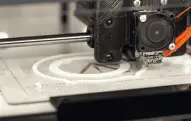The Rise of Sustainable Fashion: A Revolution in the Clothing Industry
 In recent years, the fashion industry has been undergoing a significant transformation. The rise of sustainable fashion is not just a trend but a revolution that is reshaping how we think about clothing, production, and consumption. As awareness about environmental issues and ethical concerns grows, consumers and designers alike are turning towards sustainable fashion practices, aiming to reduce the negative impacts of the industry on our planet and society.
In recent years, the fashion industry has been undergoing a significant transformation. The rise of sustainable fashion is not just a trend but a revolution that is reshaping how we think about clothing, production, and consumption. As awareness about environmental issues and ethical concerns grows, consumers and designers alike are turning towards sustainable fashion practices, aiming to reduce the negative impacts of the industry on our planet and society.
Understanding Sustainable Fashion
Sustainable fashion, also known as eco-fashion, refers to clothing that is designed, manufactured, distributed, and used in ways that are environmentally friendly and socially responsible. This movement addresses several key issues:
-
Environmental Impact: Traditional fashion practices are notorious for their significant environmental footprint. From the excessive use of water and pesticides in cotton farming to the pollution caused by textile dyeing and the massive waste generated by fast fashion, the industry has a long history of unsustainable practices. Sustainable fashion aims to minimize these impacts through the use of eco-friendly materials, reduced water and energy consumption, and the implementation of circular fashion models that promote recycling and upcycling.
-
Ethical Production: The fashion industry is often criticized for poor labor practices, including low wages, unsafe working conditions, and exploitation. Sustainable fashion advocates for fair trade practices, ensuring that workers are paid fairly and work in safe environments. This includes supporting artisans and small-scale producers who use traditional techniques that are often more sustainable than industrial methods.
-
Consumer Behavior: The rise of fast fashion has led to a culture of overconsumption, where clothing is treated as disposable. Sustainable fashion encourages consumers to buy less, choose quality over quantity, and consider the lifecycle of their clothing. This includes repairing, recycling, and donating items instead of discarding them.
Innovations in Sustainable Fashion
The sustainable fashion movement has spurred a wave of innovation in the industry. Some notable advancements include:
-
Eco-friendly Materials: Designers are increasingly using materials that have a lower environmental impact. These include organic cotton, hemp, bamboo, and recycled fibers. Innovations like mushroom leather, made from mycelium, and fabrics derived from agricultural waste are also gaining traction.
-
Circular Fashion: This concept promotes the idea of a closed-loop system where clothing is designed to be reused, recycled, or composted. Brands are experimenting with take-back programs, where consumers can return old clothes for recycling, and designing garments that can be easily disassembled for recycling.
-
Tech and Fashion: Technology is playing a crucial role in advancing sustainable fashion. From 3D printing, which reduces waste by creating items on-demand, to blockchain, which provides transparency in supply chains, tech innovations are helping the industry become more sustainable.
Challenges and the Way Forward
Despite its growth, sustainable fashion faces several challenges. One major hurdle is the higher cost associated with eco-friendly materials and ethical production methods, which can make sustainable clothing less accessible to some consumers. Additionally, there is a need for greater transparency and regulation to ensure that brands truly adhere to sustainable practices and are not merely engaging in "greenwashing" -- making misleading claims about their environmental efforts.
Education and awareness are key to overcoming these challenges. Consumers need to be informed about the impacts of their purchasing decisions and encouraged to support sustainable brands. Similarly, designers and manufacturers must continue to innovate and find ways to make sustainable fashion more affordable and scalable.











































